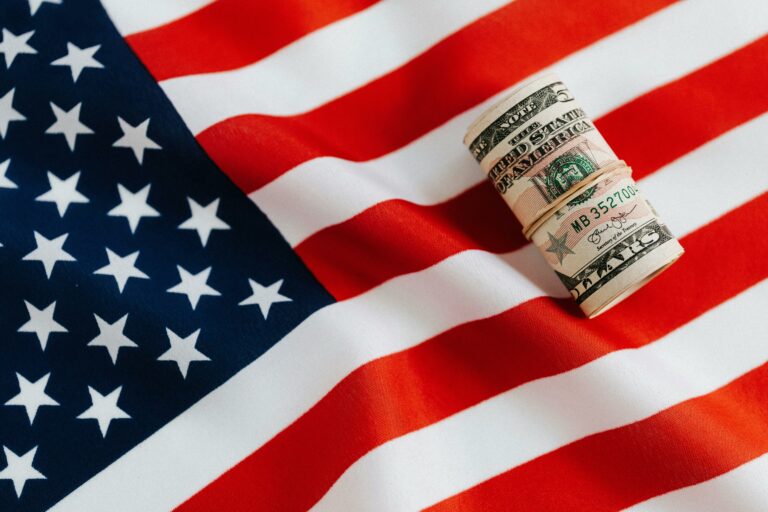An article by Jean-François Serval on the Les Echos website about the dollar and US debt
Tribune
"Donald Trump's messy policies have precipitated imbalances in the global economic system"
US debt is shaking up the global economic order. The euro is benefiting from a fall in interest rates that is favourable to its economy, and a post-dollar world is taking shape. Jean-François Serval, Chairman of Groupe Audit Serval & Associés, believes that we need to think about a new monetary standard.
The recent passage by Congress of Donald Trump's "One Big Beautiful Act" is amplifying the debt dynamic, analyses Jean-François Serval (Piroschka Van De Wouw/Reuters).
Published on 8 Jul 2025 at 12:30Updated on 8 Jul 2025 at 13:10
Like a dog in a game of skittles, Donald Trump's haphazard policies have precipitated imbalances in a global economic system whose weaknesses were well identified. The monetary issue is at the heart of this unstable edifice, with a global debt out of control.
We wrote about it in these same columns, The real question is how will the US Federal Reserve refinance the national debt in the future? The bond markets are becoming increasingly tense, and US Treasuries are under pressure. US Treasury are struggling to find buyers, while a third of US debt has to be refinanced over the next 12 months. The situation is made all the more critical by the fact that, with the debt drifting out of control, competition to place securities is increasingly fierce. Japan, traditionally a major buyer of US securities, is struggling to place its own paper. At the end of May, it was an auction of 20-year Treasury bonds that had the greatest difficulty in finding takers, at the cost of a significant rise in their rate.
The recent passage by Congress of Donald Trump's ambitious "One Big Beautiful Act" budget bill has amplified the debt dynamic.
The return of Europe
This "made in the USA" mess is rekindling inflationary fears across the Atlantic, against a backdrop of constant pressure on labour costs. The financial markets are logically reflecting this mistrust of the US economy. It's a spectacular turnaround: just 6 months ago, the dominant theme was the fear of to see European industries move to the other side of the Atlantic, Today, the major investment funds are redeploying to Europe, with a rate of 50 % to Europe and 40 % to the United States for the new cash, compared with volumes of 60 % across the Atlantic and 30 % to Europe previously. As a logical consequence of this new direction, the greenback has lost more than 10 % of its value since the start of the year.
Bond markets reflected Europe's relative return to favour in the face of US uncertainty. Demand for the Swiss franc, a safe-haven asset like gold, led to an increase in the value of the euro. Swiss National Bank (SNB) key rate recently cut to 0 % ! The euro, for its part, unlike the dollar, can benefit from a downward trend in interest rates, which is good for its economy. The world is breaking up into major currency zones.
International trade flows are undergoing profound changes, generating imbalances that affect the trade and payments balances of the least competitive countries. It is these imbalances that the US government has sought to tackle by promoting customs duties which mechanically worsened the economic situation of the weakest countries, including the United States, by slowing growth through price rises. As the World Bank has analysed, customs duties have become "a kind of tax" on a fully internationalised and integrated value chain. The slowdown in trade now represents a major risk for the global economy, against a backdrop of geopolitical crisis.
Thinking about a new monetary standard
The issue of US debt and the future of the dollar set the scene for a systemic crisis that is shaping current market perceptions. How far can the dollar slide, and is it irrevocably losing its role as the default standard with which the world economy has functioned for six decades?
The movement away from the US dollar towards the euro has not yet affected past investments. If investors were to withdraw from their dollar-denominated stocks, the possible collapse of the greenback would threaten the trading dynamic, in the absence of a currency to offset the balances. The post-dollar world The new monetary system that is taking shape will need to consider the implementation of a new standard to underpin its stability.
Jean-François Serval is Chairman of Groupe Audit Serval & Associés and author of "Innovations financières et réforme monétaire, ou comment sortir du piège de la dette" (Lextenso, 2022).







